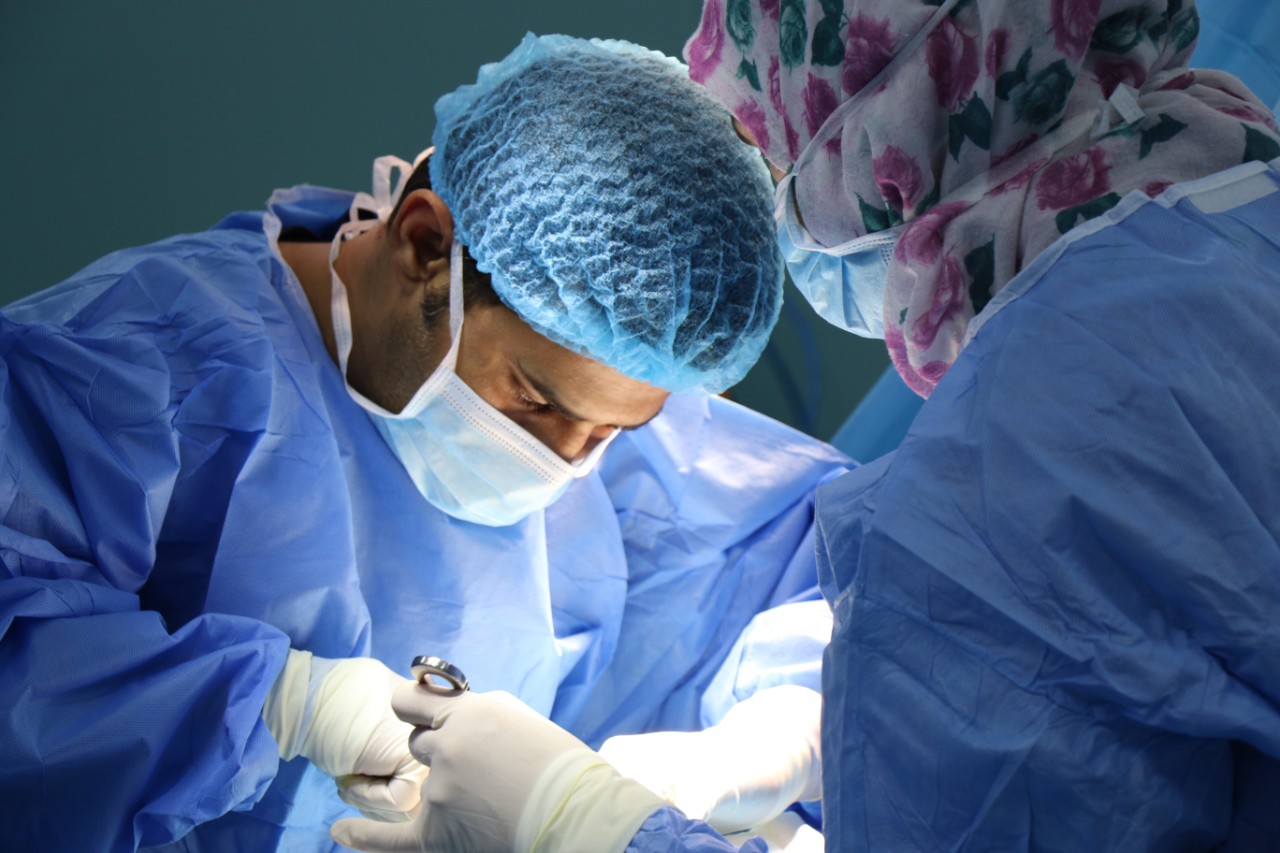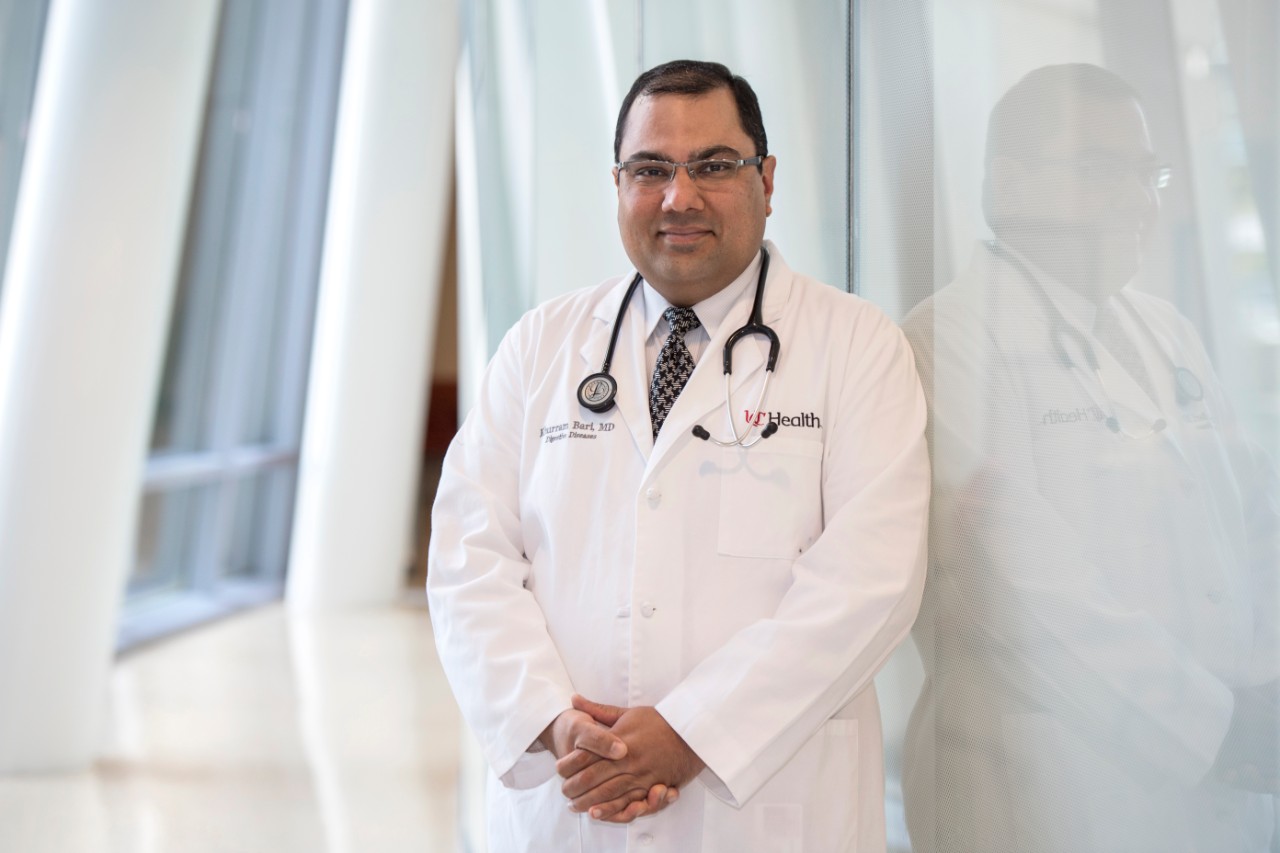
UC research finds new option for transplant patients
Common drug offers fewer side effects than prednisone, but similar organ rejection rates in liver transplants in preliminary studies
A drug commonly used to treat both asthma and inflammatory bowel disease, budesonide, may also be useful as an anti-organ rejection medication for liver transplant patients leading to fewer serious side effects than the most commonly used therapy, according to a University of Cincinnati researcher.
Dr. Khurram Bari, an assistant professor in the UC Division of Digestive Diseases, explains the drug was given to 20 liver transplantation patients over a 12-week period, and researchers found that organ rejection rates were identical to patients who received prednisone, which is considered the gold standard for treating liver transplantation patients.
Bari cautions the findings are preliminary and involve a small sample size. He will present his research at the annual meeting of the American Association for the Study of Liver Diseases in Boston scheduled to start today and continue until Tuesday, November 12.
“There are a few medications we use for immune suppression during liver transplantation and prednisone is one of them,” said Bari, a physician at UC Health, the health system affiliated with the UC College of Medicine. “We use it during the first three to six months to prevent rejection, but there are side effects.”
Nationally, about 18,000 patients are in need of a liver transplant, he says. In 2018, UC Medical Center performed 115 liver transplants, according to Bari.
“Prednisone can trigger new onset diabetes and loss of bone density,” said Bari. “Lots of studies have looked at whether we can exclude prednisone totally. It is needed, but there are a lot of side effects. I wanted to use something in place of prednisone which might be less toxic.”
There were equal immune suppression rates for budesonide and prednisone, but the rates of infections in patients with budesonide were lower, according to Bari. Also, the rates of new onset diabetes in patients with budesonide were lower than patients treated with prednisone.

Dr. Khurram Bari is shown in the UC College of Medicine.
“This is a very small study, so we could not randomize the patients,” said Bari. “We just gave budesonide to 20 patients and matched them with a control group, which received standard treatment with prednisone. My goal is to do a bigger study where we would randomize these patients with prednisone.”
The pilot study was funded by the American College of Gastroenterology and the UC Center for Clinical Translational Science and Training (CCTST). Funded by UC and Cincinnati Children’s Hospital Medical Center, the CCTST provides services and support in several core program areas, advancing innovation in clinical and translational science and training.
Bari said the U.S. Food and Drug Administration approved budesonide for oral use to treat Crohn’s disease and ulcerative colitis. It can be administered via inhaler to treat asthma.
Bari said longer term use of prednisone can also lead to kidney dysfunction and cardiovascular problems, cancers and metabolic events in patients.
“Prednisone impacts the ability of the adrenal glands to make cortisol, the body’s main stress hormone, which controls your mood, motivation and fear instincts and also plays a role in regulating blood pressure,” said Bari.
“Organ rejection is something but the risk goes lower and lower with time as the body gets used to the organ,” said Bari.
Liver transplantation patients on average have a 92% survival rate one year after surgery, said Bari. A decade later the survival rate remains near 65%, he said.
Other co-investigators on the study include Dr. Kenneth Sherman, director and professor in the UC Division of Digestive Diseases; Dr. Shimul Shah, professor in the UC Department of Surgery; Dr. Robert Cohen, professor in the UC Division of Endocrinology, Diabetes and Metabolism; Dr. Nadeem Anwar, professor in the UC Division of Digestive Diseases; Tiffany Kaiser, research associate professor in the UC Division of Digestive Diseases; and Dr. David Kleesattel, UC Department of Internal Medicine.
Next Lives Here
The University of Cincinnati's College of Medicine is ranked by U.S. News and World Report among the top 40 medical schools in the area of research. UC's faculty and students investigate problems and innovate solutions with real-world impact. Next Lives Here.
Related Stories
1819 startup flies high after national pitch
May 7, 2025
Airtrek Robotics, an 1819-based startup revolutionizing aviation safety, is soaring due to the positive publicity and valuable insights it gained during South by Southwest’s pitch competition.
UC researcher launches app to connect patients to lifesaving...
May 7, 2025
A cardiologist and researcher at UC’s College of Medicine joined the Venture Lab at the 1819 Innovation Hub to launch High Enroll, an app that links clinical trials with willing participants.
UC Blue Ash recognizes students for academic achievement and...
May 7, 2025
The University of Cincinnati Blue Ash College recently hosted a special event that recognized students for exceptional achievements during the 2024-25 academic year.
